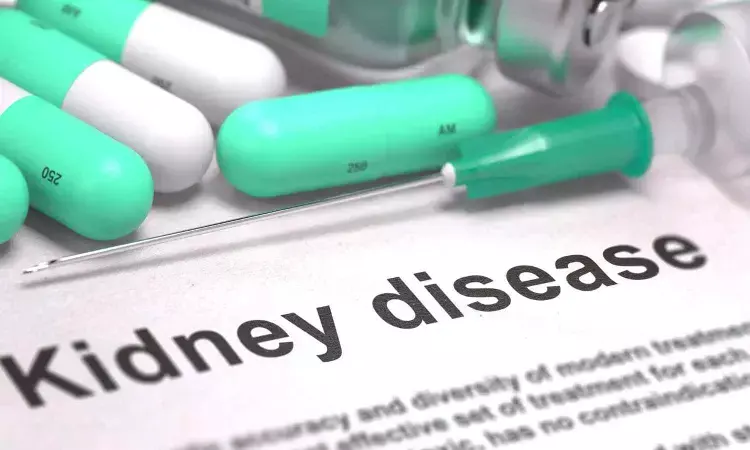- Home
- Medical news & Guidelines
- Anesthesiology
- Cardiology and CTVS
- Critical Care
- Dentistry
- Dermatology
- Diabetes and Endocrinology
- ENT
- Gastroenterology
- Medicine
- Nephrology
- Neurology
- Obstretics-Gynaecology
- Oncology
- Ophthalmology
- Orthopaedics
- Pediatrics-Neonatology
- Psychiatry
- Pulmonology
- Radiology
- Surgery
- Urology
- Laboratory Medicine
- Diet
- Nursing
- Paramedical
- Physiotherapy
- Health news
- Fact Check
- Bone Health Fact Check
- Brain Health Fact Check
- Cancer Related Fact Check
- Child Care Fact Check
- Dental and oral health fact check
- Diabetes and metabolic health fact check
- Diet and Nutrition Fact Check
- Eye and ENT Care Fact Check
- Fitness fact check
- Gut health fact check
- Heart health fact check
- Kidney health fact check
- Medical education fact check
- Men's health fact check
- Respiratory fact check
- Skin and hair care fact check
- Vaccine and Immunization fact check
- Women's health fact check
- AYUSH
- State News
- Andaman and Nicobar Islands
- Andhra Pradesh
- Arunachal Pradesh
- Assam
- Bihar
- Chandigarh
- Chattisgarh
- Dadra and Nagar Haveli
- Daman and Diu
- Delhi
- Goa
- Gujarat
- Haryana
- Himachal Pradesh
- Jammu & Kashmir
- Jharkhand
- Karnataka
- Kerala
- Ladakh
- Lakshadweep
- Madhya Pradesh
- Maharashtra
- Manipur
- Meghalaya
- Mizoram
- Nagaland
- Odisha
- Puducherry
- Punjab
- Rajasthan
- Sikkim
- Tamil Nadu
- Telangana
- Tripura
- Uttar Pradesh
- Uttrakhand
- West Bengal
- Medical Education
- Industry
Low-Dose Spironolactone found Effective for Proteinuria Reduction in IgA Nephropathy, suggests study

Low-dose spironolactone found Effective for Proteinuria Reduction in IgA Nephropathy, suggests a study published in the Kidney Blood Press.
It's crucial to utilize combination therapy for IgAN patients to reduce proteinuria and maintain stable kidney function. We demonstrate the safety and efficacy of low-dose spironolactone in management of IgAN patients. Methods: Adult IgAN patients treated with spironolactone were evaluated. Patients were separated into two categories according to whether 24h-proteinuria was reduced by more than 20% after two-months of spironolactone treatment compared to baseline levels.
Results: 88 patients were analyzed and 24h-proteinuria decreased from 0.93g to 0.70 g (p<0.001) after two-months of treatment with spironolactone, accompanied by a slight decrease in EPI-eGFR from 75.7 to 73.9 mL/min/1.73 m2 (p = 0.033). Intriguingly, 47 patients in effective MRA group showed less endocapillary hypercellularity (p = 0.040). In ineffective group, 18 patients discontinued MRA treatment because of 24h-proteinuria increased from 0.83 g to 1.04 g, while the other 23 patients were continued with spironolactone and proteinuria decreased to 0.57 g in the sixth month (p = 0.001). Furthermore, 12 patients with persistent high proteinuria during prednisone therapy, were added with spironolactone. 24-proteinuria were dropped from 0.95 g to 0.73 g at the second month, and to 0.50 g at the sixth month. Conclusions: In our study, we confirmed spironolactone's efficacy in reducing urine protein excretion in IgA nephropathy patients within two months of treatment. However, response varied among patients, with those showing endocapillary proliferation (E1) in renal biopsies having poor spironolactone responsiveness. Administering mineralocorticoid receptor antagonists (MRAs) to patients with eGFR over 30 ml/min did not result in hyperkalemia, indicating the treatment's safety.
Reference:
Da Shang, Yi Guan, Shaojun Liu, ChuanMing Hao, Lingyun Lai; Effectiveness and Safety of Spironolactone in the Treatment of IgA Nephropathy: A Retrospective Self-Controlled Study. Kidney Blood Press Res 2024; https://doi.org/10.1159/000540283
Dr. Shravani Dali has completed her BDS from Pravara institute of medical sciences, loni. Following which she extensively worked in the healthcare sector for 2+ years. She has been actively involved in writing blogs in field of health and wellness. Currently she is pursuing her Masters of public health-health administration from Tata institute of social sciences. She can be contacted at editorial@medicaldialogues.in.
Dr Kamal Kant Kohli-MBBS, DTCD- a chest specialist with more than 30 years of practice and a flair for writing clinical articles, Dr Kamal Kant Kohli joined Medical Dialogues as a Chief Editor of Medical News. Besides writing articles, as an editor, he proofreads and verifies all the medical content published on Medical Dialogues including those coming from journals, studies,medical conferences,guidelines etc. Email: drkohli@medicaldialogues.in. Contact no. 011-43720751


